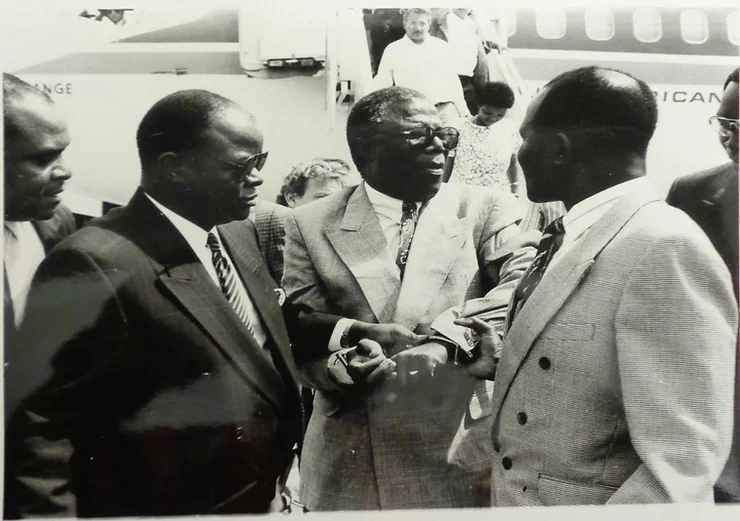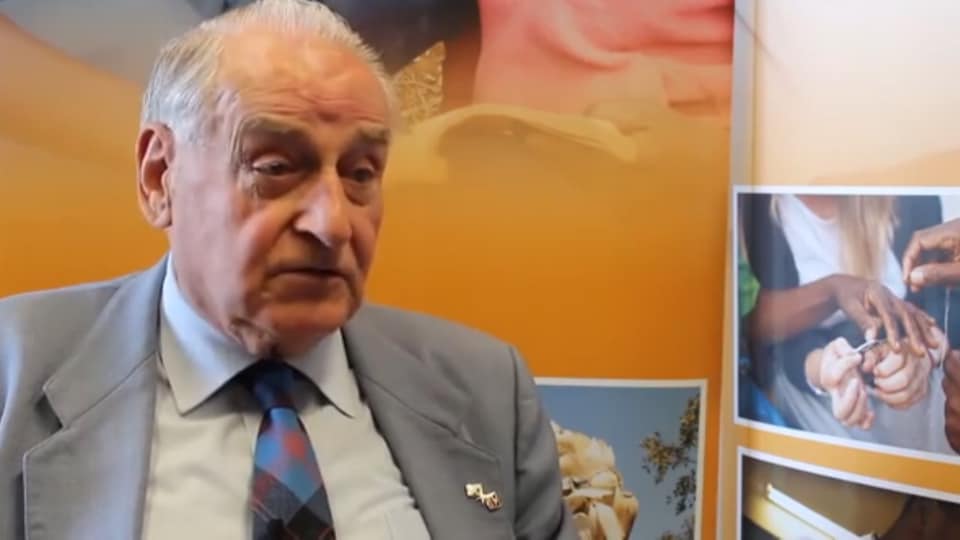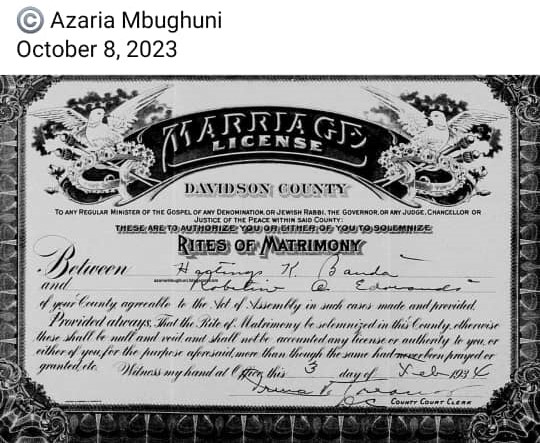The famous Lusaka conference was a three-day event that commenced on 20th March 1992 at the Intercontinental Hotel in Lusaka, Zambia. The Lusaka conference was organized by a coalition of political formations of Malawians then living in exile.
The aim of the Lusaka conference was mainly to strategise on how to intensify the pressure against the one-party state in Malawi towards democratization having witnessed a successful democratic transition in the neighboring Zambia that culminated to a veteran trade unionist Fredrick Chiluba taking over government on 2nd November 1991 from President Kenneth Kaunda who had been in power for 27 years.
This political development in Zambia that was closely monitored by Malawians in exile, triggered hope and enthusiasm about similar incident obtaining in Malawi very soon.
Initially, the Lusaka conference was scheduled to be held in January 1992. At the eleventh hour, it was postponed when the organisers received tips that there would be some political developments within Malawi against the one party.
The organisers then decided to hold on the conference and observe what would be happening on the political landscape in Malawi within the next three months. Around this time, Bakili Muluzi and some of his colleagues at the Malawi Chamber of Commerce, Brown Mpinganjira who had just been released from Mikuyu Prison, some lecturers at the University of Malawi and others, had already connected through an underground movement within the country.
They had further networked with another underground movement in the Northern region called the *Phwezi Group* to which Chakufwa Chihana was a member. The underground movement to which Bakili Muluzi and Brown Mpinganjira belonged produced and distributed two anonymous epistles in February 1992 criticising the one-party state and demanding multiparty democracy in Malawi. The two epistles were called the attention of the international media.
Chakufwa Chihana then a Secretary General (CEO) of regional body of trade unions in SADC region called Southern Africa Trade Union Coordination Council (SATUCC), was invited to attend the Lusaka conference. He delivered a key note address at the opening of the Lusaka conference on the 20th March 1992. By then, Chihana had been staying and working in Lilongwe where the secretariat of SATUCC was based since January 1989.
State records show that he was briefly detained for interrogation by the special branch police on 2nd March1992 when he arrived at Kamuzu International Airport (KIA) in Lilongwe on his way to Lusaka. The special branch police had received intelligence that Chihana was traveling to Zambia to attend the Lusaka conference.
Nevertheless, Chihana furnished evidence to the special branch police that he was going to Lusaka strictly on official duties to conduct the SATUCC Finance Committee meeting, the 19th SATUCC Executive Council (board) meeting on the 4th and 6th March 1992 respectively among others.
He eventually flew from KIA the following day on 3rd March 1992 after being cleared by the special branch police, barely five days before the catholic bishops issued the Lenten Pastoral letter against the one-party state. Indeed, Chihana’s plan was that after his official duties for SATUCC in Lusaka, he would remain in Lusaka to participate at the Lusaka conference which would be convened at the same venue where the above mentioned SATUCC meetings were also held.
According to testimonies by the two of the organisers of the Lusaka conference who talked to Lost History Foundation (LHF), before he left Lilongwe for Lusaka, Chihana had received about 9 air tickets from the organisers of the Lusaka conference for him to distribute to some individuals in the underground movement who had been included on the list of delegates from within Malawi. The 9 never received the air tickets and could therefore not travel to attend the Lusaka conference. This is why Chihana eventually ended up being the only person based in Malawi present at the Lusaka conference.
Testimonies from some members of SATUCC Executive council as well as the minutes from the 19th SATUCC Executive Council meeting, confirm that Chihana had allegedly been embroiled into mismanagement and abuse of SATUCC funds as per revelations of the recently audited accounts of SATUCC. The Finance Committee of SATUCC had therefore been mandated by the 19th Executive Council meeting to conduct a mission to the SATUCC secretariat in Lilongwe the following month of April 1992 to conduct investigations on the alleged mismanagement and abuse of funds and report back to the next Executive Council meeting for a decision to be finally made on the fate of Chihana as Secretary General of SATUCC.
The organizers of the Lusaka conference also testified to LHF that while at Lusaka conference, Chihana dismayed the delegates when he attempted to ‘impose’ himself as leader of the steering committee that had been established during the Lusaka conference to coordinate the intensification of pressure against the one-party state in Malawi.
The organisers further reported to LHF that in frustration that his attempt to ‘impose’ himself as a leader of the steering committee had foiled, Chihana walked out of the conference with few others. He immediately announced the birth of a parallel structure called Interim Committee for a Democratic Alliance (ICDA) with himself as the Chairman. This parallel structure is what two months later, metamorphosed to what we know today as Alliance for Democracy (AFORD).
Suffice to say that at this stage, the international media was awash with news on the developments at the Lusaka conference and the formation of ICDA as a parallel structure. The reports had already reached the intelligence apparatus in Malawi that the same Chihana who had been detained for interrogations on 2nd March 1992 as he tried to leave for Lusaka, eventually attended the Lusaka conference where he also delivered a speech condemning Dr. Kamuzu Banda and the one-party state in Malawi.
It was certain that upon returning to his base in Lilongwe, he would be immediately arrested for his association and active participation at the Lusaka conference whose agenda was highly critical of Dr Kamuzu Banda and the one-party state.
On the other hand, at the time of the Lusaka conference, Chihana was facing investigations by the Finance Committee of SATUCC that had just been commissioned on allegations of mismagement and abuse of funds. Furthermore, having continued to serve as the first Secretary General of SATUCC for 8 years, other quarters within SATUCC felt the period was too long that he had to leave for someone else to take over from him. Chihana’s stay at SATUCC was therefore gloomy regardless of how the outcome the investigation on the alleged mismanagement and abuse of funds would be.
Two weeks after Lusaka conference, Chihana landed back at KIA on 6 April 1992 aboard an SAA flight from Johannesburg. He was arrested by special branch police upon disembarking from the flight. He was charged of being found in possession of seditious materials. Among these seditious materials were documents from Lusaka conference including a speech he delivered during the opening of the Lusaka conference and a statement he intended to read out upon his arrival back at the airport in Lilongwe.
Chihana’s arrest ignited a strike wave over better working conditions, starting at the end of April 1992 with clerical and technical staff at the University of Malawi’s Chancellor College in Zomba and then workers at David Whitehead & Sons Textile Factory in Blantyre on 4 May 1992. From David Whitehead & Sons Textile Factory in Blantyre, the strike wave later spread to the civil service mainly the health, education, and transport sectors which almost paralyzed the state machinery.
The attention of the international media suddenly drifted away from the Lusaka conference and its resolutions towards the arrest of Chihana as a leader of an international organization on human (workers) rights and an international campaign for Chihana’s release from jail that followed which was being led by ICDA and SATUCC in collaboration with other trade unions and human rights organisations in Africa, Europe and America.
In October 1992, Chihana was convicted of sedition by the High court. On 14th December 1992, the supreme court presided over by Chief Justice Richard Banda maintained the verdict of high court but reduced the sentence to 9 months from 2 years such that Chihana was to be released on 13 June 1993 the eve of the referendum having already served 3 months of his sentence as of December 1992.
#Lost History Foundation

Chihana being arrested by special branch police immediately after disembarking from the SAA flight at KIA on 6 April 1992.



One Response
Thanks for sharing. I read many of your blog posts, cool, your blog is very good.